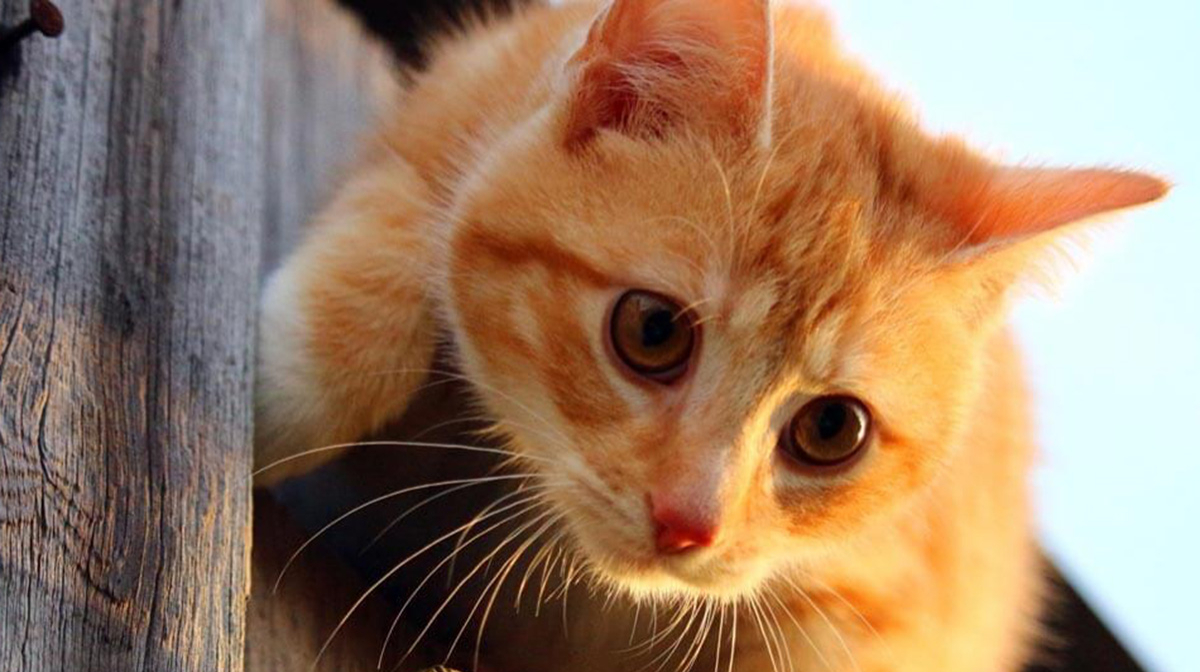
A kitten can grow 15 times faster than a human child, so it undergoes numerous physiological changes in its first year of life. Therefore, in order for a kitten to go through these changes, it will need the correct balance of nutrients in its food. As your kitten grows up and its body changes, so will its eating habits. In this article, James Wellbeloved will provide all the information you’ll need on how much to feed your kitten.
0 – 4 WEEKS
Asking yourself “how much should I feed my cat?” is never more crucial than for a newborn kitty. All things being well, to start with the litter of kittens will be fed on milk from their mother, which provides them with all the nutrients they need for this early stage of their life. If the mother refuses to feed her kittens, you should consult your vet as she may be in pain or suffering illness. If the mother is not present for any reason, the responsibility will fall to you. Like human babies, newborn kittens need milk little and often so they can take in the nutrients they need to grow. You should bottle-feed specially formulated kitten-milk to them about eight times a day, which includes getting up in the night and stimulating them to drink. If the kittens are extremely young, always ask a vet for advice on the correct way to bottle-feed and how often to do so.
4 – 8 WEEKS
From four weeks old, kittens are unlikely to get sufficient calories from their mother’s milk, meaning that the weaning phase will begin and it is time to start offering them solids. At this stage, their stomachs are still very small and their food requirement is high, so it is best to let kittens feed ad-lib so that they can eat when they are hungry. This means ensuring that food is constantly available, even going so far as to fill several bowls around the home. If your kitten knows food is always available, it is less likely to overeat, preventing a distended stomach. Your kitten’s first solid food should contain plenty of protein to ensure they keep growing at the right rate. You can try either dry or wet kitten food, or a combination of both. While wet food is useful for single servings, dry food can be left in the bowl longer for your kitten to go back to when they feel like eating. To ease kittens into eating dry food gradually, you can moisten food with some milk replacer or a small amount of wet kitten food.
8 – 12 WEEKS
Now your kitten has started to show a preference for the food they like, it is time to start introducing meal times. However, they still have a lot of growing to do, so need to be fed at least four times a day. Dry food should still be left out for free-feeding, cleaning the bowls once a day, but wet food should be removed if it hasn’t been eaten in half an hour. You can refrigerate wet food if some has been left, but it shouldn’t be kept open for more than a day. Refrigerated food should be allowed to return to room temperature before putting it down for the kitten.

12 – 24 WEEKS
Your kitten has learned the ropes pretty well now and will start showing a preference for routine. Now is the time to start serving food consistently in just one part of your home which is quiet, calm and clean. The natural pattern for cats’ eating is ‘little and often’ so you should not expect your kitten to clean the bowl in one sitting. Dry food allows the kitten to eat whenever they want, but wet food should be given separately in small, regular portions. Feeding dry food alone or feeding both wet and dry foods are both perfectly acceptable, but feeding wet alone may make it difficult for your kitten to get sufficient nutrients in the day. Dry food also helps to keep your kitten’s teeth and gums heathy. Whichever type you choose, it is vitally important to have fresh water constantly available. The water bowl should not be next to the food bowl but there should be one in the same room.
24 – 48 WEEKS
Now your kitten is well on its way to becoming an adult cat. Some cats can regulate their intake themselves to avoid weight gain, but others can be prone to overeating. Now is the time to start paying more attention to how much food you are giving. Use the on-pack feeding guide to calculate the day’s food supply, making sure that all the foods given – wet, dry, treats – are included in your calculations. However, remember that the guides are for average kittens; individual requirements can vary significantly, and it is important not to under- or over-feed. Keep a close eye on the kitten’s body condition score and adjust the food intake accordingly. For guidance on what to feed your cat, see our handy food guide. If you are in any doubt about the amount of food you should be feeding your kitten, then consult your vet.









